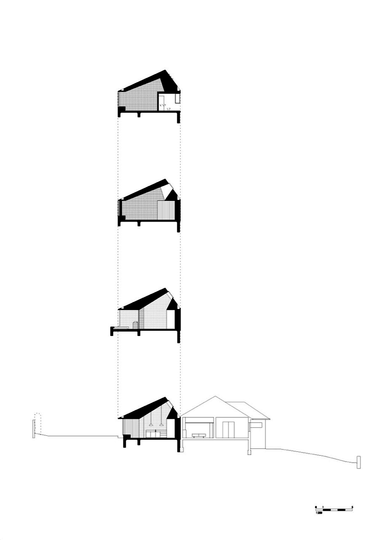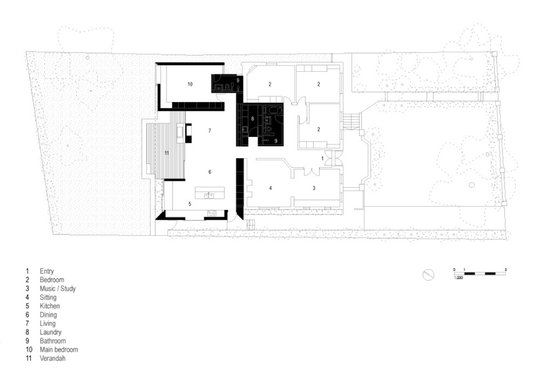It's a common problem with Federation and Californian Bungalow style homes -- poor orientation for natural light and a missed opportunity to connect with the garden. This alterations and additions project was no exception, and a major part of the brief involved fixing these past mistakes…
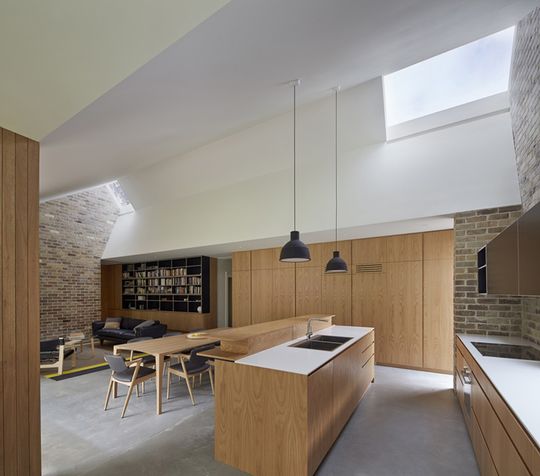
Compact and Affordable Solution
The home, located in a predominately Federation and California Bungalow neighborhood on Sydney's north shore, had to meet the needs of a family of six. While the clients' thought going up would be the only solution, Andrew Burges Architects came up with a more compact and affordable single level design which draws natural light in and connects seamlessly to the backyard.
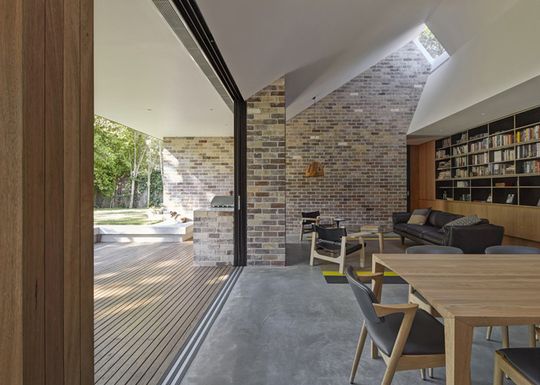
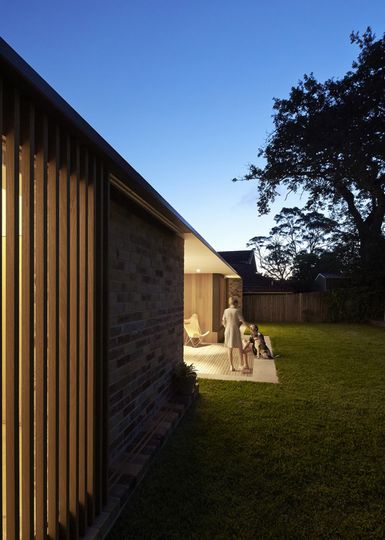
Skylighting
"The conceptual framework of the house has been developed around improving the quality and character of natural light in both the existing interior and as a defining element in the new addition. 5 skylights – two existing and three new – have been incorporated to shape a distinct cross section that allows natural light and a connection to the sky from within the deep internalized footprint of the existing house, while shaping a generous and spacious cross section in the new addition." -- Andrew Burges Architects
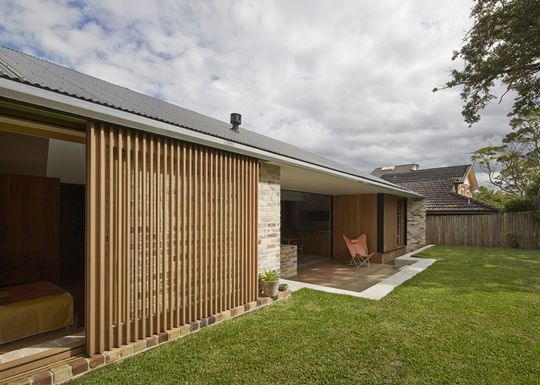
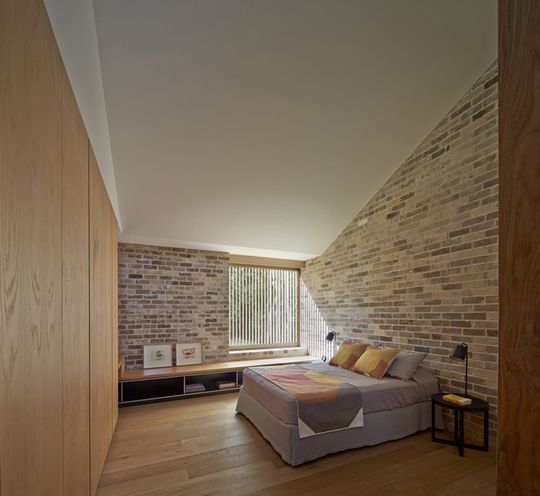
Efficient Replanning
The more generous cross-section of the new addition allowed the architects to reconfigure the internal planning to better suit the needs of this family of six. Wasted space has been minimized thanks to the careful insertion of a new central services core containing the a bathroom and laundry. This reduced excessive corridors and creates a direct connection from the entry to the living rooms and the new addition.
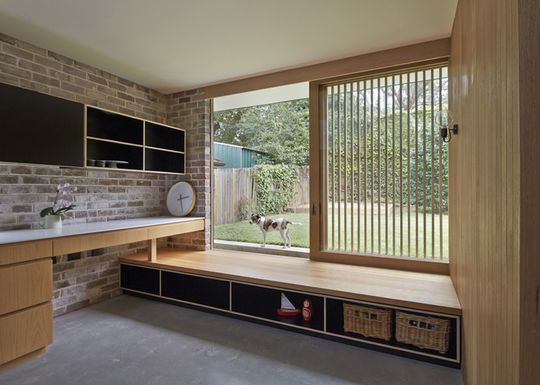
Generous Storage
The new internal walls of the addition have been designed as thickened storage walls. Generous storage space moderated the need for more space by providing ample room for storage for the large family.
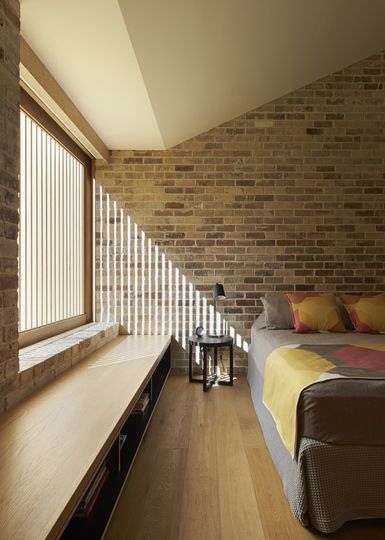
Contrasting Material Palette
The skylights and shaped section has also determined the material character of the house. The section creates a play between an abstract, white, sculptured ceiling line and bulkhead datum, which washes light on the more robust natural finishes used below the ceiling and bulkhead datum.
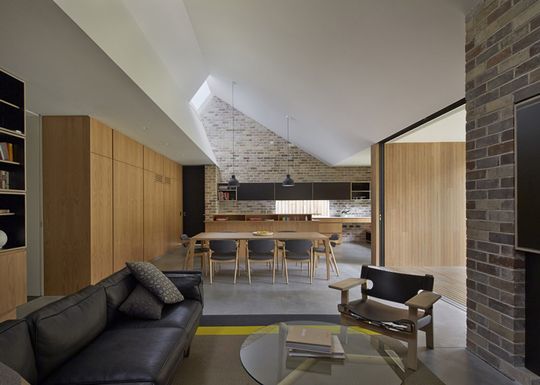
Light Above, Robust Where Needed
The major structural walls are recycled face brick re-used from the existing house’s demolished rear walls and external laundry and bathroom. All joinery below the ceiling line datum is American oak, while the floor is concrete with underfloor heating. Internally this creates a clear palette of abstract lightness above, while all materials within touching distance of the occupants are robust, easily maintained natural materials.
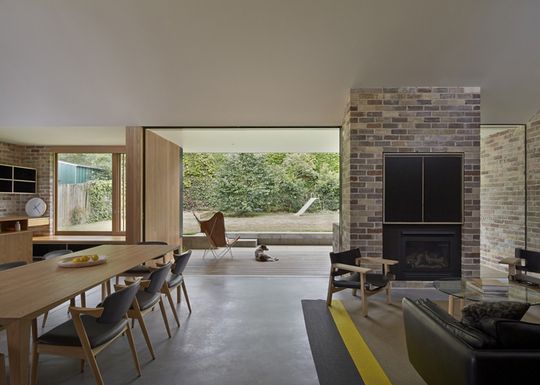
Sensitive Rear Facade
Externally, the roof edge and brick edge of the side walls defining the key vertical and horizontal rear lines of the facade are cut to a common dimension of 50mm, giving a lightness to the bounding frame of the rear facade. Within this outline, timber walls and windows are integrated to be a common material finish that creates the perception of a separate building element within this long rear façade.
Sliding screens allow variability to the façade according to sun control and privacy needs. The roof form, while housing a complex interior section, creates a simple and modest outline for the rear addition that sits comfortably with the federation and California Bungalow neighboring dwellings.
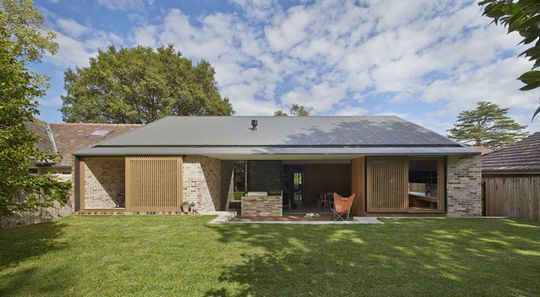
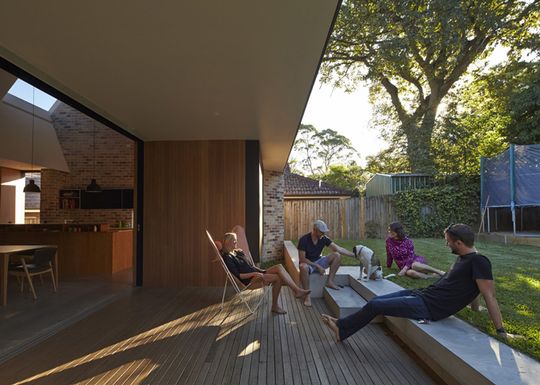
Social and Environmental Sustainability
The Skylight House addresses social and environmental sustainability by attempting to create significant improvements in the environmental amenity and performance of an existing 1940’s building, while also making a series of material choices to limit waste. Key initiatives in the development of the project included:
- The development of a generous cross section that significantly improves privacy and natural light in the existing house and new additions, reducing the need for use of lighting during daylight hours.
- The use of recycled brickwork in the project – combining re-used bricks from the site with recycled bricks from the brick pit to reduce waste and improve the carbon footprint of the project.
- The use of hydronic underfloor heating as the principle source of heating in the project, reducing energy usage of the house.
- The use of extensive cross ventilation, eaves and an operable screen system as a substitute to artificial cooling, reducing energy usage of the house.
